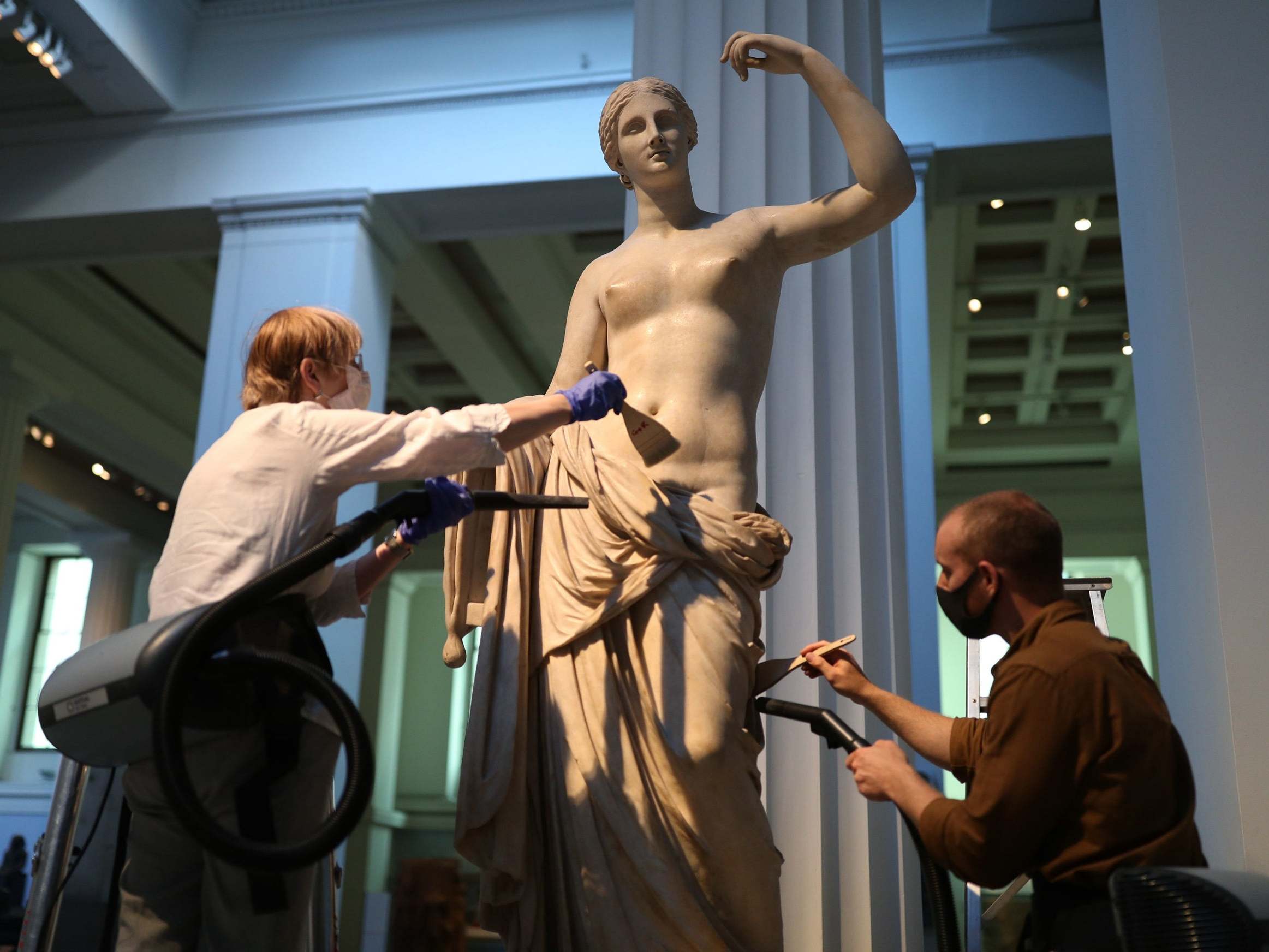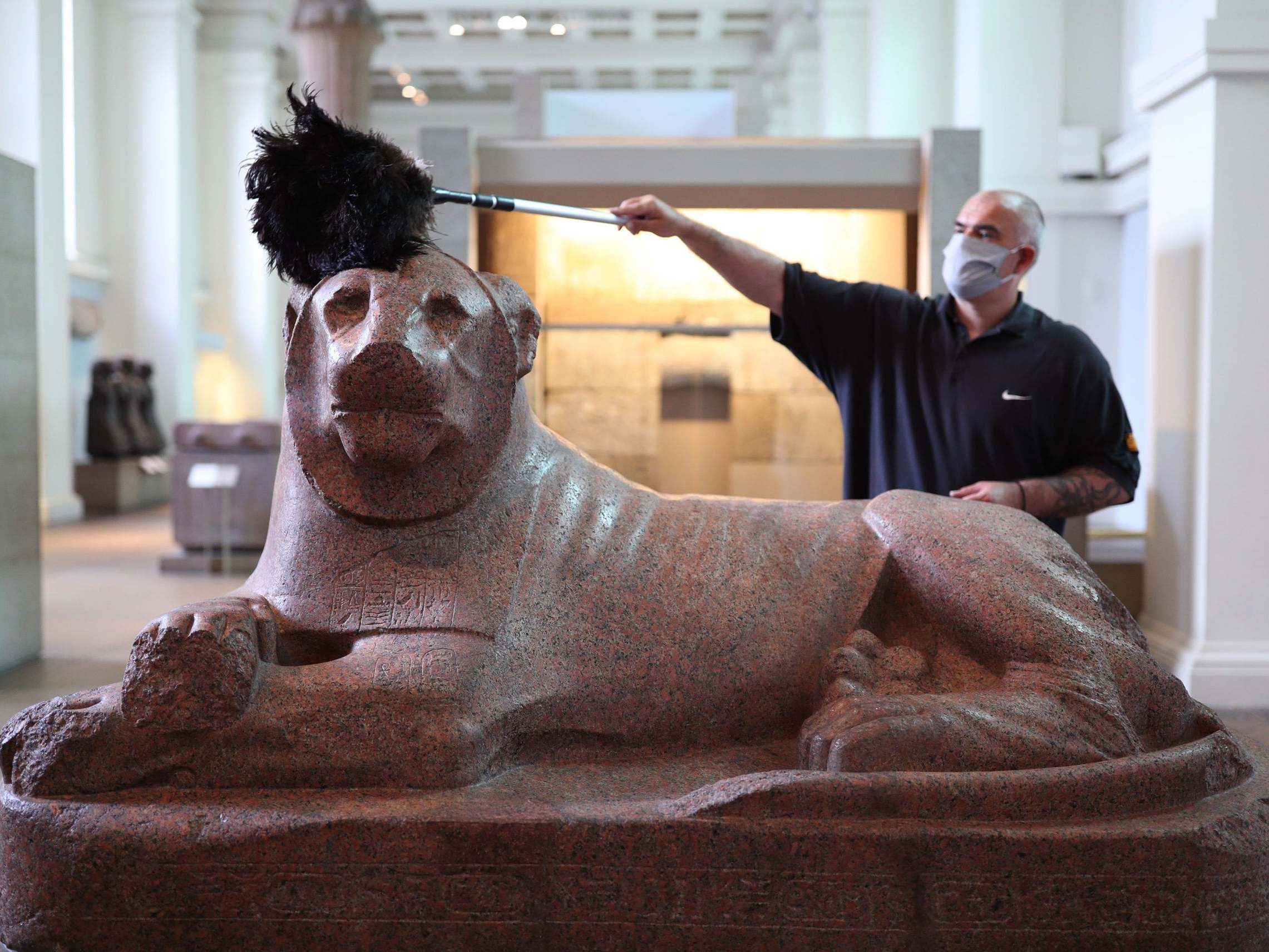British Museum undergoes biggest deep clean in decades to remove lockdown dust
Tickets for the first day of the museum’s reopening have already sold out
The British Museum is undergoing its most extensive deep clean in decades to remove dust that has accumulated during coronavirus lockdown.
Teams of experts have been tasked with cleaning the surfaces of the museum’s exhibits to prevent damage by potentially dangerous dust particles.
Over 30 members of staff have been dusting the museum’s many collections for roughly three weeks straight.
The London-based attraction has been closed as a result of the ongoing pandemic, but is now set to re-open its doors on 27 August.
The British Museum’s preventative conservator and dust expert Fabiana Portoni revealed that the build-up of dust particles on ancient artefacts has been known to cause long-term damage.

Dust originates in nearby traffic pollution, or from visitors, who unknowingly transfer dust into the building on their clothes or hair fibres.
Portoni told PA: “During lockdown, all of these sources were reduced, however there was still dust present around the museum.”
Some of the museum’s larger artefacts have had to be cleaned using equipment like ladders and a cherry-picker.
While the venue only underwent limited cleaning during the lockdown closure, Portoni added that the closure had provided an unprecedented chance for a thorough deep clean.
“A lot of these objects, to be able to clean them, they require ladders and different equipment and we have to do it before opening or after opening, so the timing is a little bit reduced,” she said.
“But now, because we are closed, we can spend hours cleaning and there’s no rush, so it is a good opportunity for that.”

The British Museum will have been closed for 163 consecutive days by the time it reopens, constituting the longest peacetime closure in its 261-year history.
Tickets for the day the museum reopens have already sold out.
New measures to ensure safe social distancing are set to be introduced, including the need to pre-book visits and the adherence to a one-way route around some of the galleries.
Join our commenting forum
Join thought-provoking conversations, follow other Independent readers and see their replies
Comments
Bookmark popover
Removed from bookmarks